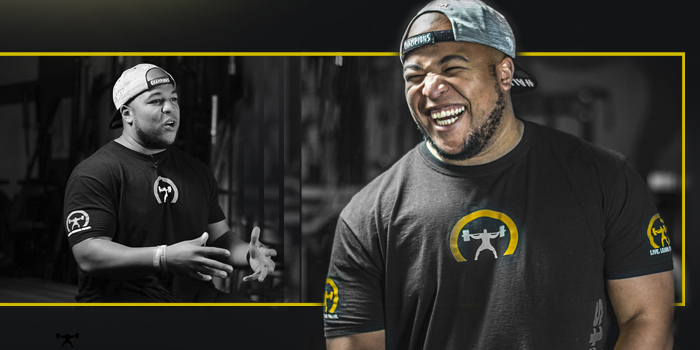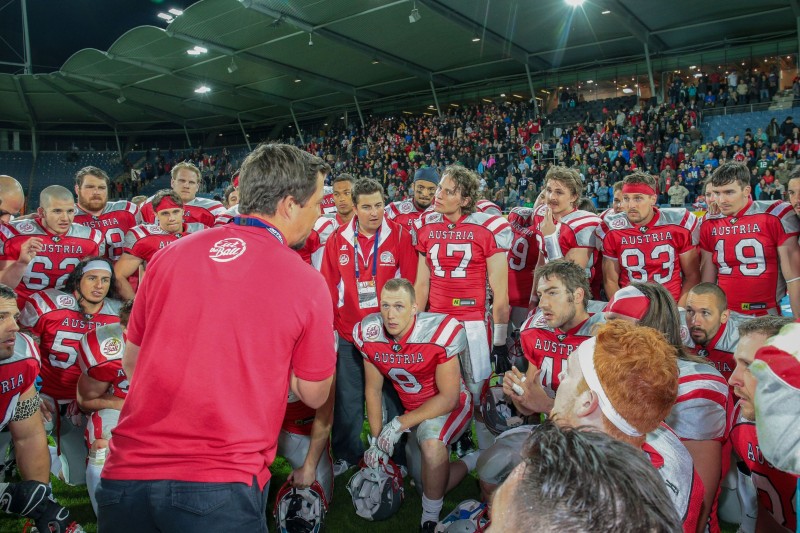
The end of the year is a very busy time for us strength coaches. I’ve found this particular end of the year as one of my busiest, for obvious reasons. Even when I had everything planned for months (I am a meticulous planner), I found myself becoming busy with small side projects and various other little tasks. During this busy time, I was asked by fellow strength coach Zach Houghton to be part of his podcast. I expected him to just ask me the basic questions about who I am, what I do, and how I became a strength coach. I was completely wrong. Our entire conversation spanned 47 minutes of discussing professionalism and what we can do to make our industry better.
Now, if you knew me in 2013 you would laugh at the thought of me being featured in a podcast talking about professionalism. And you would be right to laugh, but thankfully I am not the same man I was four or five years ago. There are two things that made this fundamental change happen: age (as I’ve matured, I’ve become a better coach) and Mike Gittleson (I’ll explain this later). Obviously like fine wine, I’ve gotten a lot better with age. Not only have I grown, but my cues have also grown, my knowledge has grown, and I’ve gained practical experience and absorbed lessons taught by the great coaches I’ve been around.
RECENT: Athlete Programming Made Simple
So where does Mike Gittleson come into play? It was one Sunday after a game I was in the weight room just about to leave but got held up for something. In walked Coach Gittleson, and with him two gifts: grip work devices and knowledge. My players loved the grip work devices, and I do have to admit that they were pretty challenging. As for me, I loved the knowledge he brought. That day he told me, amongst many other things, that, “You become a good coach when you learn to use your voice as a weapon.” What he meant by that is that you don’t have to yell and scream and cuss. You can just as easily say something and that’s simply what it is. You learn to actually coach instead of scream.
I was dumbfounded by what he said. Up to that point I had thought I was mastering the old Jedi coaching arts. I cut my cues down to precise cues rather than berating my kids with too much (something I did a lot when I started out). I had learned the way of keeping kids accountable and many other little things that often get overlooked. I thought I was a Jedi Master at this point. I had never thought of something so small as “quit cussing.”
Image credit: Herbert Kratky © 123rf.com
At first, I was in denial. I thought to myself. “Well, that’s just how he coaches, but I don’t coach like that because I’m me and I talk like a sailor. That’s just how it is.” Then I started to notice how I sounded when I coached or when I spoke to the team — and I didn’t like what I was saying. As I said on the podcast, you don’t sound too intelligent when every other word is a four-letter word. I think especially as an African American man, you don’t want to seem “unintelligent” to the wrong types of people.
After I listened to myself for a few weeks, I thought back to other coaches I respected who had been coaching for a long time and how they communicated. Did they occasionally swear? Of course, they did, but not like Samuel L. Jackson in Pulp Fiction (sorry, mom). So I worked very hard on not only cutting back on what I was saying but also focused on how I expressed myself with words.
When I think of using your voice as a weapon, a great analogy comes to my mind: You’re out in the woods hunting and you see a bear. The bear sees you and instantly it’s coming. Now it’s a hundred or so yards away so you have to make your shots count or it’s game over, fast. In this situation, the first thing you wouldn’t want to do is shoot every which way with your eyes closed. This probably wouldn’t be the most efficient way of killing that bear. If anything, that approach is an absolute guarantee you’re not going to make it out of those woods alive. What you do want to do is take very precise aim and make sure you take a shot that counts. If you can hit the bear with the right gun (mine is a .44 Magnum) in the right spot, and only use one bullet to take it out, that’s a win. You may see another bear as you’re coming out the woods, so you better not waste all the bullets on the first bear.
So what does my crazy bear analogy actually mean? There are coaches that constantly cuss, over-cue, and shoot all their bullets (their words) all the time. This not only causes mass confusion with your athletes but it also becomes dull. If you want to make a point that you’re really mad but you always seem mad, how are you going to hit home effectively? If the kids see you pissed off screaming all the time, how do you express it when you really are angry?
MORE: The Secret to Success in the Weight Room: Training Hard and Knowing Your Players
This leads to my next point of professionalism: quit running around like wild animals on game day. I said this during the podcast and I meant it. Don’t let me tell you how to run your marriage; what works in your weight room works for you. The way I’ve seen it best is in guys who coach passionately. I am no hype man; I bring passion and energy, but that’s how I am with everything in life I care about. I’m not going to be ringing a gong and setting myself on fire on game day. If we want to be better as a profession, we need to be better.
Game day isn’t our time to shine and show off our antics on live television. Game day is about the kids and taking care of them. I’m too busy making sure guys are stretched, hydrated, and have everything they need to be ready to go on game day. I don’t have time to worry about my pyrotechnics or my pregame ritual. It’s not the Grammys — it’s a football game! And it’s not the Super Bowl halftime show either! What happens with the sideline antics and pre-game shows are one of three things, and none of them are good:
- Your kids ignore you because they’re focusing on the game.
- You effectively make it all about you.
- You end up looking like a complete fool on national television.
If we want to be looked at like professionals then we need to start speaking and acting like professionals. I’m not saying to be someone else; I’m not perfect at this either. I had a very tough time addressing the team the other day without saying a few four or five letter words. There was even the occasional double-swear, but I am trying to be better. Like I said, the last thing I need as a young African American man in this industry is to be thought of as ignorant or unintelligent.
That doesn’t mean I’m someone I’m not. When I’m at work, I don’t do all the stuff I do at home or when I’m out with my friends. This doesn’t mean at work I’m fake or not genuine. It means I’m being a man and holding myself accountable just like I ask the players to hold themselves accountable. And as I said, these are things I believe are going to help me be a more efficient coach, but whatever works for you works for you. To each his own. But we always ask the question, "How do we make our industry better?" Well, I say we make it better by being better.











